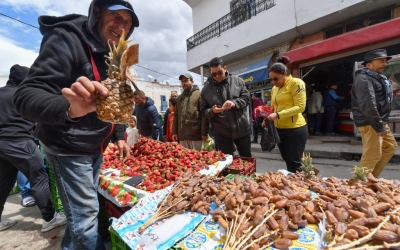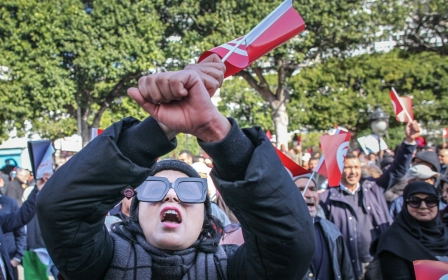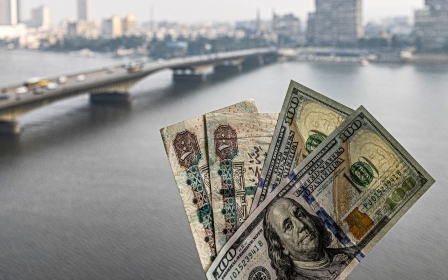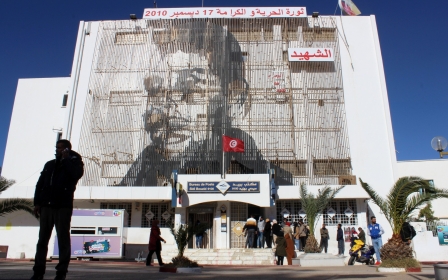Can Tunisia avoid bankruptcy?
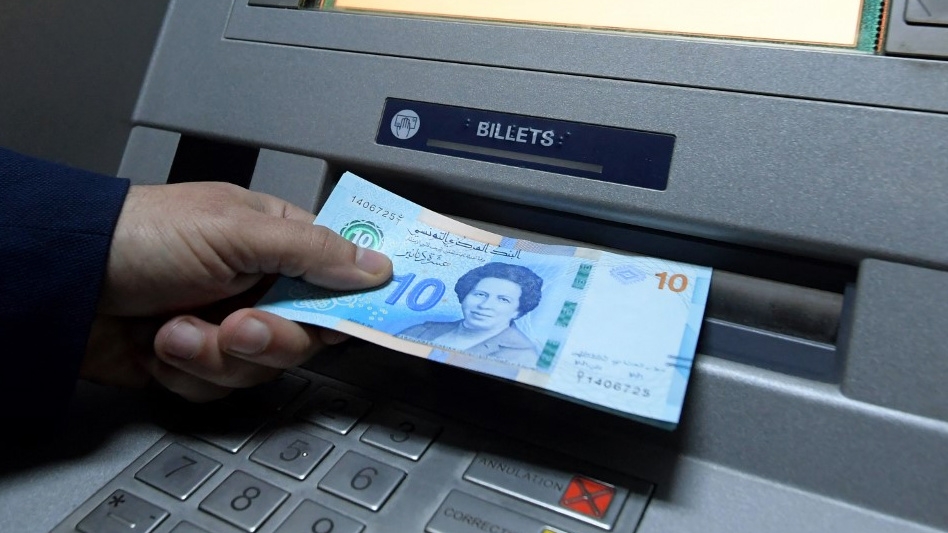
Twelve countries reportedly risk going bankrupt or defaulting on their debt payments, including Egypt and Tunisia in the Middle East.
According to recent data, Tunisia's economy is facing chronic problems, starting with public debt, which spiked to more than 80 percent of Tunisia's national income or the GDP - it was less than 40 percent in 2010, immediately before the Arab Spring.
In addition, the deficit in the current account (balance of trade) has climbed to 15 percent of GDP as prices of imported goods, like basic commodities and energy sources, have increased sharply over the past 18 months, due to global inflation and the effects of the ongoing Russia-Ukraine war.
Together, these developments shot up inflation in the country to a record figure that exceeded 10 percent from January through April of this year.
Given the difficulties that Tunisia's economy faces, it is worth examining whether there is an opportunity to dodge default.
New MEE newsletter: Jerusalem Dispatch
Sign up to get the latest insights and analysis on Israel-Palestine, alongside Turkey Unpacked and other MEE newsletters
In 2011, much of the world watched with great admiration the Tunisian people pioneer the Arab Spring revolutions. But following the political upheaval in the country was an economic slowdown that was later exacerbated by the impact of the Covid-19 pandemic.
Weak investment led to a decline in economic or output growth, resulting in a decline in job creation. In light of these challenges, and to maintain order and security, the government implemented populist policies such as increasing fuel subsidies and basic goods.
Under pressure from the strong Tunisia Labor Union, governments used to create jobs in the public sector without a real plan to fix the distortions of the economy.
This short-sighted way of handling the economy, along with political conflicts that have only deepened since 2021 after President Kais Saied granted himself extraordinary powers, seemed to fast-track the country to economic failure.
The IMF loan is considered a green light for international donors and lenders from the EU and Gulf Arab states to further assist Tunisia's economy
In terms of the balance of trade, Tunisia is a net importer, which means its imports are greater than its exports. As inflation rates increased worldwide, this deficit has doubled in the last 12 months to about $1.9bn, the same amount as the IMF bailout proposal, which has been rejected by the Tunisian president.
In his speech on 5 April, Saied declared that he would "not hear diktats" from the IMF. His rejection of the proposal largely stems from his unwillingness to cut down fuel and basic goods subsidies, as well as the public sector payroll bill, though his technocrat team expressed that there is no choice but to go ahead with the IMF loan agreement.
While the country's officials assert that Tunisians must "rely on themselves", this noble objective is unfortunately not attainable in the short run. They might think of some options like aid from Algeria and/or the African Export-Import Bank Afreximbank, but even this would not solve the entire financing problem in Tunisia.
It is worth stressing that the IMF loan is considered a green light for international donors and lenders from the European Union and Gulf Arab states to further assist Tunisia's economy. In fact, the current draft of the IMF agreement encourages the international community to show wider financial support for Tunisia, highly needed in 2023-2024 as per Fitch, the rating agency that downgraded Tunisia to CCC, which is one step before a default.
A way forward
In summary, Tunisia's high public wage bill and generous subsidies, along with secondary factors, have led to a significant general budget deficit. This is compounded by a large balance of trade deficit with the country's imports outnumbering its exports.
The Central Bank of Tunisia is now running out of foreign currency reserves, which may last for only 90 more days as the amount has sharply dropped to $7.8bn.
In its financing plan, the Tunisian government has stated that it needs more than $5bn from external parties for 2023-2024 to reduce the deficit in the balance of trade, supplement the central bank reserve and finance the import of food and fuel.
The plan is also supposed to cover instalment payments totalling $1.5bn to the EU on a loan that would reach maturity in 2023-2024. It also calls for increased local finance in the Tunisian dinar (TND) needed to cover up deficits in the government budget.
In the immediate term, there is no alternative but to reach a settlement with the IMF. This deal will pave the way for an international bailout, to which both the EU and GCC countries are expected to contribute. Ultimately, the Tunisian government must recognise that lenders generally follow the IMF's lead, approving what the agency approves. It is the same criterion the GCC countries applied to Egypt as well.
In the long run, there are many steps needed to fix the economy: fighting corruption and restoring and enhancing democracy and transparency are crucial to turning things around.
The rentier state in handling the economy must be put to an end as it could not work in Tunisia's case because of its poor resources. This includes fixing the imbalances in the government subsidies system for commodities and fuels and cutting down the public wage bill while still ensuring the support reaches the deserving vulnerable classes.
Reforming investment laws, getting rid of bureaucracy, improving security and reforming the tourism sector, which makes up 7 percent of the economy, will further help to reduce the balance of payments deficit.
The government must also support the private sector's role in agricultural and industrial development as it can serve as one of the key solutions to reform the balance of payments deficit and, therefore, increase foreign currency reserves in the central bank safes.
The views expressed in this article belong to the author and do not necessarily reflect the editorial policy of Middle East Eye.
Middle East Eye delivers independent and unrivalled coverage and analysis of the Middle East, North Africa and beyond. To learn more about republishing this content and the associated fees, please fill out this form. More about MEE can be found here.



